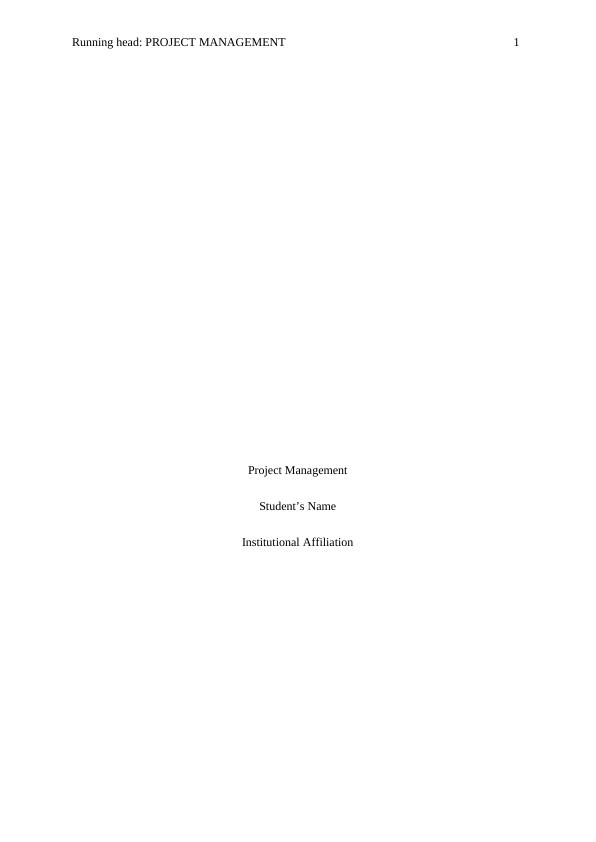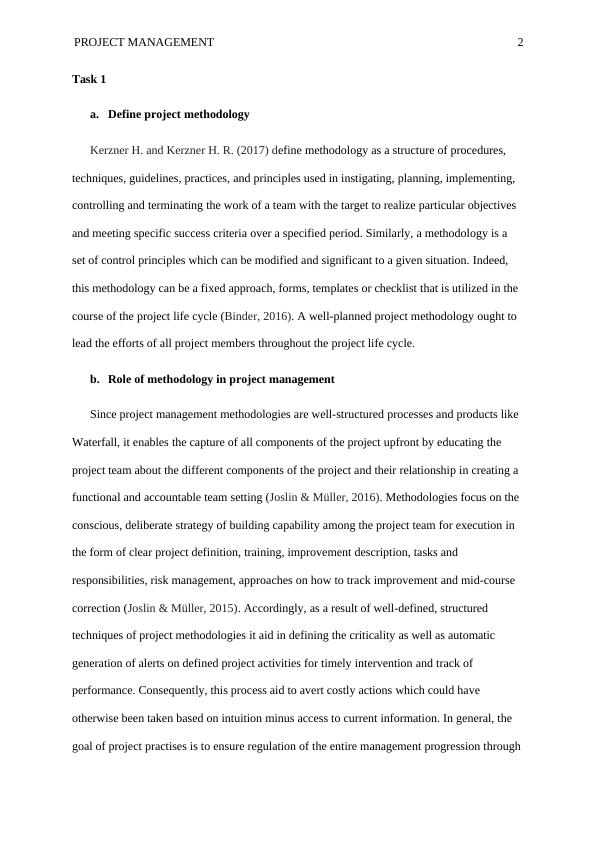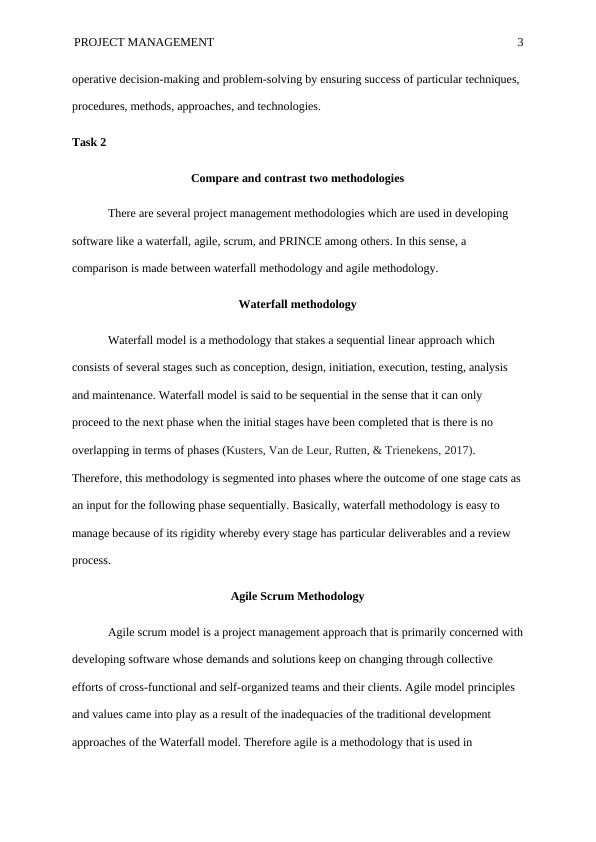Project Management Methodologies: Definition, Role, and Comparison
6 Pages1148 Words443 Views
Added on 2023-04-17
About This Document
This document provides an overview of project management methodologies, specifically focusing on the definition and role of methodologies in project management. It also compares and contrasts two popular methodologies, waterfall and agile, highlighting their similarities and differences. Additionally, it explores how the agile methodology relates to the project life cycle.
Project Management Methodologies: Definition, Role, and Comparison
Added on 2023-04-17
ShareRelated Documents
End of preview
Want to access all the pages? Upload your documents or become a member.
Project Management Methodologies: Waterfall vs Agile
|6
|970
|268
Project Management
|9
|1430
|82
Project Management Methodologies
|5
|993
|437
ICT Project Management
|8
|1211
|176
ICT Project Management: Methodologies, SDLC, Waterfall, PLC
|6
|1018
|140
Project Management Methodologies: Agile vs Waterfall
|6
|1194
|302



